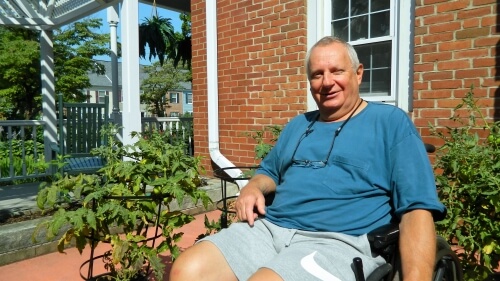Mother and son make Homeland their home

Peggy and Russell (aka Rusty) Kreiser at Homeland Center
Over the years, Homeland has seen many residents who are husband and wife. There have been siblings, too.
But a mother and son? That is a first since Peggy and Russell Keiser have made Homeland their happy home.
Peggy and Rusty, as he’s known to all, arrived in late 2018. She is well-known in the area for her 65 years as the secretary for 10 superintendents of Susquehanna Township School District, from Joseph Hilbush in 1943 to Susan Kegerise in 2011.
Along the way, her accumulated “claim to fame’’ as she calls it, included:
- Creation of an annual scholarship known as the Peggy Hummel Keiser Scholarship for the Secretarial Sciences, established in 1991 by the Susquehanna Township High School class of 1951.
- Renaming of the high school library to the Keiser-Fearen Library Media Center, in honor of her and “a treasure of a teacher” named Alice Fearen.
- And on her retirement, more years of service in the Pennsylvania School Employees’ Retirement System than anyone else – ever.
Peggy’s storied career started because she and three other Susquehanna Township High School seniors, all girls, were asked to help with secretarial work in the office. Before graduation, she was asked to take the position full-time. That began 65 years of knowing the school district inside and out and watching it grow.
Peggy’s Central Pennsylvania roots run deep. Her maiden name of Hummel marks her as a descendant of the founder of the Hershey-area town of Hummelstown. Plus, her mother was a Lingle, connected to the founding of the charming Harrisburg-area village of Linglestown.
Peggy’s father worked in the office of Harrisburg Steel. By the time Peggy retired, she was back living in the Susquehanna Township home built brick-by-brick by her grandfather, Augustus Alitto. An immigrant from Calabria, Italy, Alitto was one of the stone masons who worked on the Susquehanna Township School District elementary school and the Hersheypark Arena, the original home of the AHL Hershey Bears.
Soon after she started working for the school district, young Peggy was selling tickets at a football game, when she accidentally shortchanged a sailor named Nelson Keiser. They were married the next year and had two children, Sandra and Rusty.
The children attended Susquehanna Township schools, where Sandy was involved in field hockey. Rusty was a special education student who loved sports so much that he got to work with legendary football coach Roscoe Warner.
In 1979, Peggy was thinking about retiring, but one day, her husband called to say he wasn’t feeling well. She took him to the hospital, where he later died. Although it was a difficult time for her, she persevered. Peggy and Nelson had lived in a beautiful home in Susquehanna Township, but it became too much to manage, so she moved into the brick cottage that her grandfather built.
Today Rusty still loves sports, especially the Philadelphia Phillies. He has met the late, great announcer Harry Kalas. He roots for the team through thick and thin.
“They lost last night 15 to 1,” he said the day after a trouncing by the rival Washington Nationals. “But I just like to watch them play.”
Added Peggy, “He’s terrible when he’s watching them. He’s terribly loud.”
The move to Homeland has gone very well for mother and son. When Peggy felt it was time to leave her home, they decided to get a suite for each of them. Their apartments, including Peggy’s bright corner room, are two doors away from each other.
“He knows everybody here,’’ said Peggy. “He loves this place.”
Rusty takes advantage of the full range of activities available. “Bingo,” he said. “Sports trivia. Exercises. I do exercises six days a week.”
She, too, enjoys Homeland, attending holiday parties and special events.
“The people are nice,” she said. “It’s a place of pleasure and convenience. I like it here.”

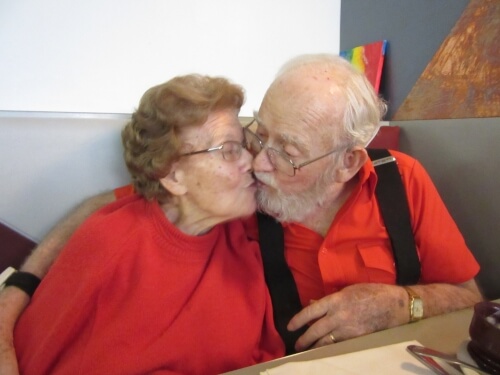
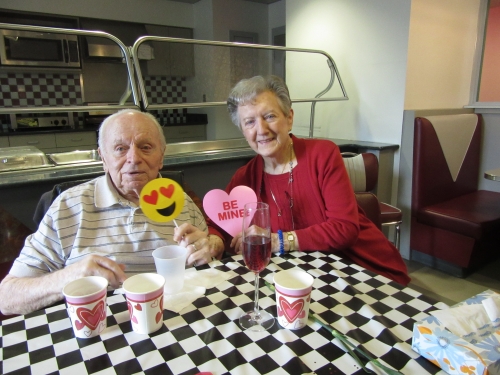
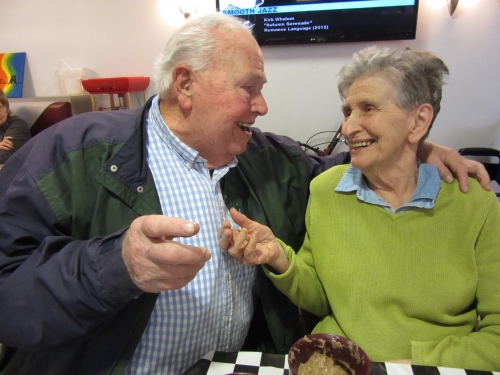
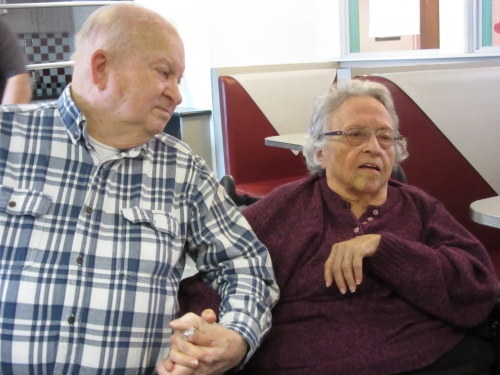
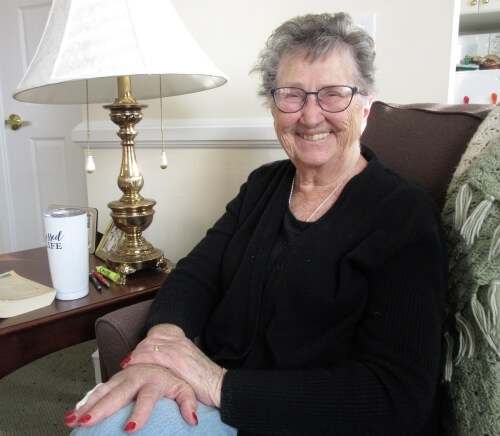
 Lynda Vinton’s father often missed school to help support his family. One day, he knocked on the door of his one-room schoolhouse and asked to take the sixth-grade exam.
Lynda Vinton’s father often missed school to help support his family. One day, he knocked on the door of his one-room schoolhouse and asked to take the sixth-grade exam.